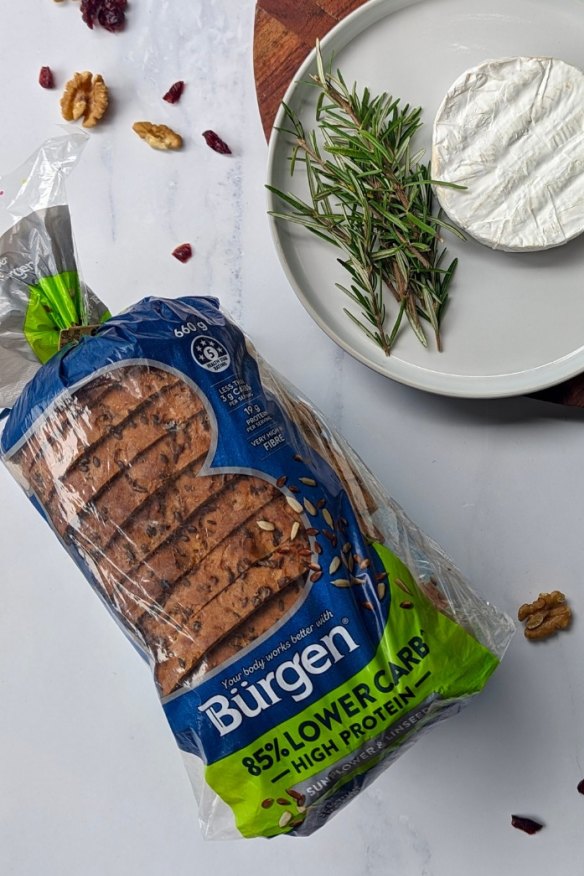From bread to ice-cream, the range of protein-rich supermarket products is ever growing. The question is, are they any healthier than regular foods?

Protein is certainly the buzz word in nutrition. Whether you are trying to gain weight, optimise metabolism or ward off weight gain associated with peri-menopause, you have probably heard that protein is a super-nutrient many of us need to be eating a lot more of.
You may also have noticed that there is a growing selection of protein-rich supermarket foods, ranging from bread to pizza bases, yoghurt to ice-cream. The question is, are these products really healthier?

Protein bread
Bread is one of the first dietary staples to get the boot on a low-carb diet, but there has been a growing range of higher protein bread options in supermarkets that can contain as much as 20g of protein per two slices. Typically heavy in grains and seeds, high-protein breads may also have ingredients such as bamboo and soy protein added to bump up the protein content. Protein-rich breads can certainly be a nutrient-rich addition to the diet, but they are fundamentally different nutritionally to regular bread in both taste and texture, creating a chewy texture that is not ideal for sandwiches. If you do enjoy these products, keep in mind that along with the nutrients, they also tend to be higher in calories than regular wholegrain bread.
Top choices
- Burgen Lower Carb High Protein Sunflower & Linseed Bread
- Aldi Bakers Life Lower Carb Higher Protein Bread

Protein wraps
Protein-rich loaves have ingredient lists that are relatively clean of additives, but protein wraps are a different kettle of fish. Made with a range of highly processed ingredients, a typical low-carb, high-protein wrap can contain protein added via wheat fibre and soy protein. Emulsifiers and preservatives give the product its texture and long shelf life, though there is very little natural fibre from whole grains or other nutrient-rich base ingredients. If you like a wrap, look for options with a wholegrain base, and with a minimal ingredients list.
Top choices
- Aldi Bakers Life Mini White or Wholegrain Wraps
- Coles Wholemeal & Grain Soft Wraps

Protein yoghurt
Protein yoghurts on the whole are minimally processed and nutrient-rich additions to the diet. Made with a concentrated dairy base, the majority of protein-rich yoghurts provide more than 15g of natural dairy protein, and minimal other additives. Even the fruit options tend to be strong nutritionally, made using natural sources of fruit sugars rather than added sugar to create a tasty, protein- and calcium-rich food.
Top choices
- YoPRO Perform High Protein Yoghurt No Added Sugar Mixed Berries
- YoPRO Danone High Protein Yoghurt No Added Sugar Vanilla

Protein chips
There is nothing healthy about a baked or fried chip that has extra processed protein to create a snack that contains just 5-10g of extra protein per serve. Protein is most helpful in the diet when found in its natural form, in foods that naturally contain protein. As such, adding it to grain or vegetable chips means that you get a high-calorie, expensive food for very little extra protein.
Top choices
- The Happy Snack Company Roasted Fava Beans Lightly Salted

Protein bars
Protein bars, while generally ultra-processed, can be a convenient way to get upwards of 10-15g of protein in a single, transportable bar. They are often low in sugar, and made with sweeteners and sugar alcohols. Not overly “healthy”, protein bars can be useful when travelling, or as a protein-rich food that can be enjoyed when the only other option is packaged snack food or fast food. The key is to find options that contain fewer than 150-200 calories, and provide at least 10g of protein per serve. Protein bars can be extremely high in calories and some varieties contain just 5-10g of protein a serve.
Top choices
- BC Snacks Dark Chocolate Almond High Protein Bar
- Carman’s Protein Bars Low Sugar Dark Choc & Roasted Nut

Protein ice-cream
There are a growing number of protein-based desserts, including puddings and icy treats. They are not technically “ice-cream”. The key with these protein-rich desserts is to ensure they have a dairy or soy base to boost the overall nutritional profile of the product, as well as less than 5g of sugar per serve, as some high-protein foods can also contain plenty of added sugars. The downside is that these lower calorie, higher protein desserts also tend to be relatively expensive, so they suit those with specific protein-related dietary goals.
Top choices
- Wicked Sister High Protein Chocolate Pudding
- Twisted Protein Frozen Dessert Butter Caramel Cookie
The best recipes from Australia’s leading chefs straight to your inbox.
Sign up
